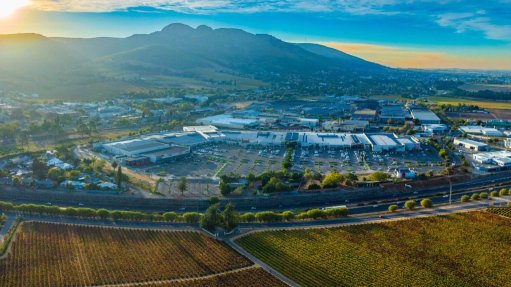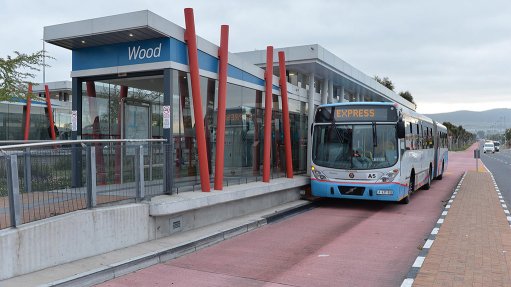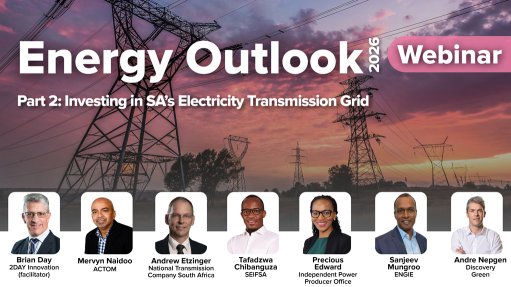South Africa’s water security challenge scores highest in study
South Africa’s low level of renewable fresh water per capita, high water use rates and high levels of both consumption and leakage have resulted in the country having the highest water challenge score in the 2024 BSI / Waterwise Water Security Indicator.
With a water security challenge score of 30, South Africa faces a high level of water security risk, which, the study says, is particularly concerning amid the El Niño drought and above-average temperatures in early 2024.
The high-level index, exploring the use of water at a country scale, combines publicly available data with international polling of over 9 300 people to evaluate how water insecurity is perceived in some of these countries, finding a concerning disconnect between the reality of the challenge, public understanding of its severity and the action required to turn things around.
The lower the challenge score, the lower the level of water security risk for that country.
According to the Department for Water and Sanitation, 98% of the country’s available water resources are already allocated, and climate change, degradation of wetlands, siltation of dams and escalating demand owing to population and economic growth, urbanisation, inefficient water use and changing lifestyles are placing further strain on South Africa’s water supply.
“South Africa is experiencing a particularly significant water challenge, reflecting not only the scale of water insecurity, but slower progress in terms of infrastructure and public engagement. Using water wisely will be critical to support economic development and social need in South Africa, as well as protecting the biodiversity of the planet. However, the experiences during the Cape Town Day Zero event show that it can be done,” says BSI Imeta MD Theuns Kotze, pointing out, however, that there is no perfect solution to the challenges.
However, he points out that it is a global issue.
Of the 41 countries assessed, 14 received scores representing greater water insecurity in 2024, including North Macedonia, the Netherlands and Belgium, while Türkiye and Spain have seen the greatest increase in water insecurity. Further, Asia, China, India and Japan also received worsening scores.
In the 2024 Water Security and Solutions Indicator, China, India and the US all score above 50 out of a possible 85, meaning they face some of the greatest challenges and are making limited progress on solutions.
Decreases since 2023, indicating improvements in water security, were generally small and only seen in eight countries, including Sweden, Switzerland, Slovenia and Norway.
Compared with this, the polling data suggests gaps between the reality of the global water security challenge and public comprehension of the scale of the issue. About 74% claimed to be confident in their country’s freshwater supply, including 85% in India, 82% in Australia and 73% in the US.
The study noted that, while 60% of respondents surveyed in the report recognise water security as an important global issue, and 76% of the respondents specifically cite drought in their country as an issue, only 45% said addressing water security was as important as addressing climate change.
The polling also found that only 15% of the respondents globally say they see water security discussed regularly by politicians or media.
Globally, the report showed that 21% of respondents in the UK and 15% of respondents in Japan were least confident in their understanding of their country’s level of water security, potentially indicating the impact of insufficient political and media focus.
Additionally, a quarter globally lacked confidence in their country's infrastructure for ensuring water security, with the lowest confidence levels reported in the UK at 32%, and Japan at 44%.
However, 53% of the respondents globally believe in the need to act, saying it is important for individuals to take steps to reduce wastage and promote water security, while 73% globally would support the introduction of water use labels on products, reflecting a strong desire for actionable solutions.
Similarly, 68% would be willing to spend more on brands acting on water efficiency and 67% would purchase items using less water-intensive materials, such as recycled cotton, even at greater cost.
“While we are seeing pockets of progress towards a water-secure world, there is more to do to promote understanding and positive change. This begins with awareness and recognition of the scale of the challenge, and how it fits into broader conversations about climate change and sustainability - from there our politicians and leaders can pave the way for action,” says BSI CEO Susan Taylor Martin.
While there is no single solution, action can be taken, from implementing water efficiency labelling to improving consumer choices, to advancing wastewater management in pharmaceutical development.
“There is much we, as individuals, organisations and society, can achieve collectively.”
Waterwise CEO Nicci Russell adds that, while there is a genuine appetite in the public to be part of the solution, water security challenges remain.
“Progress is frustratingly slow in most of the world and in other parts, the challenges posed by water security are actually growing.
“What is crystal clear from the research is that a key part of the solution is making sure that we use the water that we do have wisely in our homes and workplaces. In doing so, we will ensure that we adapt to climate change better, secure water supplies for people and businesses, and enhance the environment.”
Article Enquiry
Email Article
Save Article
Feedback
To advertise email advertising@creamermedia.co.za or click here
Comments
Announcements
What's On
Subscribe to improve your user experience...
Option 1 (equivalent of R125 a month):
Receive a weekly copy of Creamer Media's Engineering News & Mining Weekly magazine
(print copy for those in South Africa and e-magazine for those outside of South Africa)
Receive daily email newsletters
Access to full search results
Access archive of magazine back copies
Access to Projects in Progress
Access to ONE Research Report of your choice in PDF format
Option 2 (equivalent of R375 a month):
All benefits from Option 1
PLUS
Access to Creamer Media's Research Channel Africa for ALL Research Reports, in PDF format, on various industrial and mining sectors
including Electricity; Water; Energy Transition; Hydrogen; Roads, Rail and Ports; Coal; Gold; Platinum; Battery Metals; etc.
Already a subscriber?
Forgotten your password?
Receive weekly copy of Creamer Media's Engineering News & Mining Weekly magazine (print copy for those in South Africa and e-magazine for those outside of South Africa)
➕
Recieve daily email newsletters
➕
Access to full search results
➕
Access archive of magazine back copies
➕
Access to Projects in Progress
➕
Access to ONE Research Report of your choice in PDF format
RESEARCH CHANNEL AFRICA
R4500 (equivalent of R375 a month)
SUBSCRIBEAll benefits from Option 1
➕
Access to Creamer Media's Research Channel Africa for ALL Research Reports on various industrial and mining sectors, in PDF format, including on:
Electricity
➕
Water
➕
Energy Transition
➕
Hydrogen
➕
Roads, Rail and Ports
➕
Coal
➕
Gold
➕
Platinum
➕
Battery Metals
➕
etc.
Receive all benefits from Option 1 or Option 2 delivered to numerous people at your company
➕
Multiple User names and Passwords for simultaneous log-ins
➕
Intranet integration access to all in your organisation


















